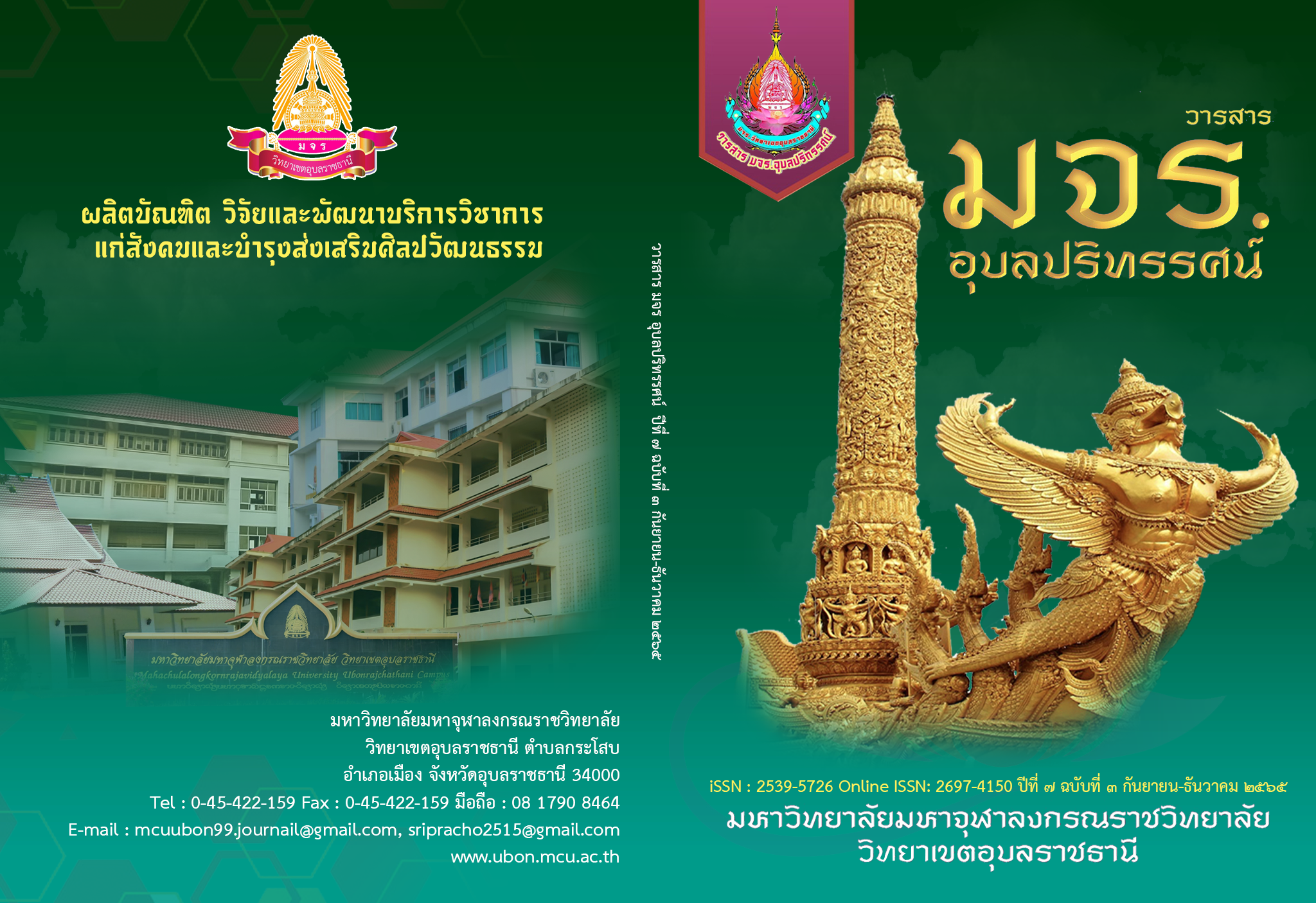Health Believes Model on post-Covid-19 infection during Digital Transformation
Main Article Content
Abstract
This study aims to investigate the Health Belief Model of individuals in the post-COVID-19 virus infection period. Moreover, this study seeks to recommend adaptation and health practices during digital transformation. The COVID-19 pandemic has had a severe and rapid impact on individuals, families, the economy, society, politics, and the way of life of people around the world. Governments across the globe, including Thailand, have taken measures to prevent and monitor the spread of the virus, while public health authorities have done their best to provide care for patients and develop effective treatments. Since the first wave of the outbreak in January 2020, the World Health Organization declared that the virus was endemic by 2022, and in October of that year, Thailand announced its own endemic status. Currently, there are 646,301,105 people around the world who have been infected with the COVID-19 virus and 6,643,987 people have died. In Thailand, the population infected with the virus is 4,711,528, with 33,285 deaths (data as of 07/12/2022). Given this, the majority of those infected with the virus is still alive and must therefore continue to live. This raises the interesting issue of how the health knowledge model of this group is being modified. Living in a rapidly changing digital society that requires both self-adjustment and adaptation to society, and the environment, these concise and swift communication systems all have direct and indirect effects on lifestyles and patterns of health beliefs in all dimensions. The use of digital data can be applied to government, private, and public health services, including healthcare, which has a considerable effect on the efficiency of healthcare. In practice, this involves the development and use of digital technology to support healthcare services and make them more convenient, faster, and more efficient.
Article Details
References
ขันติจิตร, พ. และ คณะ (2564). แบบแผนความเชื่อด้านสุขภาพในการป้องกันโรคติดเชื้อไวรัสโคโรนา 2019(COVID-19) ของประชาชน ในจังหวัดอุบลราชธานี.วิทยาลัยพยาบาลบรมราชนนี สรรพสิทธิประสงค์.5(2).39-53
ข้อมูลประชากรที่ติด Covid 19
แหล่งที่มา: Our World in Data ;เข้าถึง https://ourworldindata.org/covidvaccinations?country=OWID_WRL https://news.google.com/covid19/map?hl=th&mid=%2Fm%2F02j71&gl=TH&ceid=TH%3Ath
ปวีณา พันตัน, พนิตนาฎ ตะกรุดแกว้ และศศิธร ไชยเพชร (2549). Health belief modelกับdrug adherence ของ ผู้ป่วย Hypertension. [ออนไลน์]
แหล่งที่มา http://mis.lib.nu.ac.th/med_research/detail.php
(11 กุมภาพันธ์ 2557)
ศูนย์เทคโนโลยีสารสนเทศและการสื่อสาร สำนักงานปลัดกระทรวงสาธารณสุข (2560). ยุทธศาสตร์เทคโนโลยีสารสนเทศสุขภาพ กระทรวงสาธารณสุข (2560 – 2569): eHealth Strategy, Ministry of Public Health (2017 – 2026). กรุงเทพฯ: ศูนย์เทคโนโลยีสารสนเทศและการสื่อสาร สำนักงานปลัดกระทรวงสาธารณสุข.
Abed, W.H., Abu Shosha, G.M., Oweidat, I.A., Saleh, R.I., Nashwan, A.J., 2022. Jordanian nurses’ attitudes toward using electronic health records during COVID-19 pandemic. Informatics in Medicine Unlocked 34, 101102. https://doi.org/10.1016/j.imu.2022.101102
Bartczak, K.T., Milkowska-Dymanowska, J., Piotrowski, W.J., Wojciechowski, S., Cichocki, M., Walasek, M., & Kaczmarek, J. (2022). The utility of telemedicine in managing patients after COVID-19. Scientific Reports, 12, 21392. https://doi.org/10.1038/s41598-022-25348-2
Baudier, P., Kondrateva, G., Ammi, C., Chang, V., Schiavone, F., Iizuka, M., & Ikeda, T. (2022). Digital transformation of healthcare during the COVID-19 pandemic: Patients’ teleconsultation acceptance and trusting beliefs. Technovation, 98, 102547. https://doi.org/10.1016/j.technovation.2022.102547
Becker, M. H. (1974). The Health Belief Model and personal health behavior. Health Education Monographs, 2, 324–508.
Brahmbhatt, D. H., Ross, H. J., & Moayedi, Y. (2022). Digital Technology Application for Improved Responses to Health Care Challenges: Lessons Learned From COVID-19. The Canadian journal of cardiology, 38(2), 279–291. https://doi.org/10.1016/j.cjca.2021.11.014
Budd, J., Miller, B.S., Manning, E.M., et al. (2020). Digital technologies in the public-health response to COVID-19. Nature Medicine, 26, 1183-1192. https://doi.org/10.1038/s41591-020-1011-4
Bui, L. V., Ha, S. T., Nguyen, H. N., Nguyen, T. T., Nguyen, T. P., Tran, K., Tran, T. V., Nguyen, T. H., Tran, T. H., Pham, N. D., & Bui, H. M. (2021). The Contribution of Digital Health in the Response to Covid-19 in Vietnam. Front. Public Health, 8, 672732. https://doi.org/10.3389/fpubh.2021.672732


